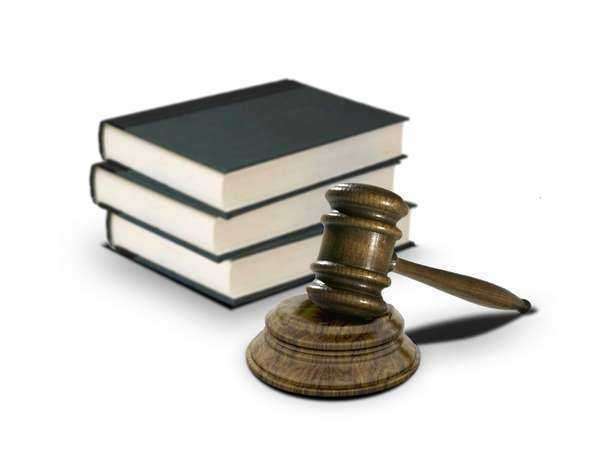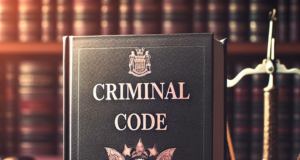
Special defenses are generally employed when it is unlikely that an attorney will be capable of proving their client’s innocence due to the evidence and testimony supplied by the prosecutor.
The criminal defense attorney may attempt to utilize a special defense in order to diminish their client’s criminal liability. Defense lawyers may choose to employ these defenses in order to prove that extraneous circumstances have made it unconstitutional to sentence a defendant for their detrimental actions.
The special defense that an attorney may choose to employ can be a defense that is well-known and common, or it may be a defense that is unique and seemingly bizarre. There have been many instances in which a ludicrous criminal defense, such as the “matrix defense,” has been successful in negating a defendant’s criminal culpability. A successful special defense will assist a defendant in avoiding criminal sentencing or may reduce the severity of the sentence that an offender receives.
Infancy
When an individual stands trial for a criminal offense it is essential that they find an attorney who will establish a convincing and acceptable criminal defense. The defense must encompass evidence and an explanation that proves the defendant’s innocence or negates their criminal liability. There are many different forms of defense that an attorney may attempt to employ while attempting to lessen or negate their client’s criminal sentence.
In modern history, one of the more reliable defenses is the defense of infancy. This criminal defense is only effective if the defendant has not yet reached the age that has been designated as the age of criminal responsibility.
However, even if the defendant is under the age of criminal liability, this defense may not be successful in negating the defendant’s responsibility or punishment for the crime that they have committed. A child can be tried in the juvenile justice system or, in some cases, they may be tried as an adult. In cases such as this, they will be sentenced to an adult punishment.
Duress
Sometimes it is difficult to determine when an offender should be held liable for the illegal actions in which they have taken part. Sometimes an individual may take part in criminal behavior without any intention or desire to cause harm to another person. If an offender takes part in an illegal activity without the intent of causing harm it seems unfair that they receive a severe sentence for their actions. This is especially true when a crime is committed under duress.
In some rare cases, an individual may take part in illegal activities because they feel that they have no other choice. They maybe be forced to take part in criminal behavior by another individual through the use of force or through the threat of violence. When this occurs a criminal defense attorney will use the defense of duress. In order for the duress defense to be effective there a various different aspects of the defense that must be satisfied.
Necessity
In some instances an individual may take part in criminal behavior because they have no other choice. It is possible for necessity to compel an individual to violate the law. Extraneous circumstances may cause a law abiding citizen to take part in criminal activities. The Government recognizes that in rare instances it is necessary to break the law in order to minimize the injury and the damage that another person or another person’s property may sustain.
In order to avoid causing extreme physical injury or the loss of life an individual may be required to take part in criminal activities. Therefore, it is possible for a criminal defense attorney to utilize the defense of necessity.
Like in all forms of criminal defense, various factors must be satisfied for the necessity defense to be successful. The defendant must be able to prove that the harm that resulted from their illegal behavior was necessary to prevent more severe damage and that without the behavior in question more devastating effects would have occurred.
Entrapment
One type of criminal defense that is often portrayed in novels and in movies is entrapment. When a criminal defense attorney employs this defense they are claiming that a Government agent was responsible for coercing the defendant and causing them to take part in illegal behavior that they would not normally take part in.
In order for the defense of entrapment to be successful the Government agent must not have only provided the offender with the opportunity to commit a crime, but they must have also have partaken in adequate methods of persuasion in order to convince the defendant to break the law. The entrapment defense is rarely utilized, and when it is, it is generally not successful.
It is very difficult to prove that entrapment has occurred. The defense of entrapment is also very risky for a variety of different reasons. Therefore, criminal defense attorneys often try to avoid utilizing the entrapment defense.
Excessive Government Involvement
Excessive Government involvement may result in the misconduct of law enforcement officers. When the Government becomes extremely involved in large scale criminal investigations, Government officials may misuse their power and authority. In instances such as this, the police officers who are involved in a criminal investigation may take part is misconduct.
Excessive Government involvement and the misconduct of Government officials may be unconstitutional because it may violate due process. When criminal defense attorneys utilize this defense they are not denying that their client took part in the crime of which they are being accused. Instead they are arguing that continuing the judicial process would not be fair because the conduct of the Government officials who were involved in the criminal investigation was outrageous and violate the due process of law. Like entrapment, there are many aspects of outrageous Government behavior that must be met in order for this defense to be effective.
Special Personal Defenses
There are many different criminal defenses that a defense attorney may employ in order to decrease their client’s criminal liability. The most common criminal defenses include insanity, intoxication, or duress. An individual who has committed a crime under these conditions cannot be held accountable for their actions due to extraneous circumstances. However, these defenses are not relevant to every crime or to every criminal.
It is common for a criminal defense attorney to develop a special personal defense that will help to decrease their client’s criminal liability, and therefore, diminish the severity of their conviction and sentence. Though some of these special defenses have been employed in numerous cases, they tend to be much less common than other forms of defenses.
Defense attorneys may be required to develop a new and unique defense based on the life experiences of the defendant. Special personal defenses must be successful in convincing the jury that the defendant cannot be held legally accountable for their behavior because of the mentality and mind frame that they have developed due to environmental, social, or physiological circumstances.
Attorneys
An individual who is facing criminal charges should seek the assistance of an experienced criminal defense attorney. Without the assistance of a defense lawyer an individual who is facing criminal charges will be forced to represent themselves. Self-representation in criminal cases is not recommended and may be extremely detrimental to the future of the defendant.
In the majority of cases, the defendant does not understand all of the necessary aspects of a criminal court case and will not have the ability to effectively convince a court of their innocence. Therefore, it is essential that an individual who is being accused of taking part in criminal activity locate a successful criminal defense attorney in their area.
If an offender does not have the financial stability to enlist the assistance of a lawyer, they may qualify to be given a court-appointed attorney. However, this is also not always in the best interest of the defendant.












 Each State is responsible for establishing and maintaining State laws. The Federal Government has little or no power over the laws that each State chooses to establish. Every State is responsible for the safety and the security of the people that live within its borders, and they are obligated to create State laws that will help to ensure this safety.
Each State is responsible for establishing and maintaining State laws. The Federal Government has little or no power over the laws that each State chooses to establish. Every State is responsible for the safety and the security of the people that live within its borders, and they are obligated to create State laws that will help to ensure this safety. 












